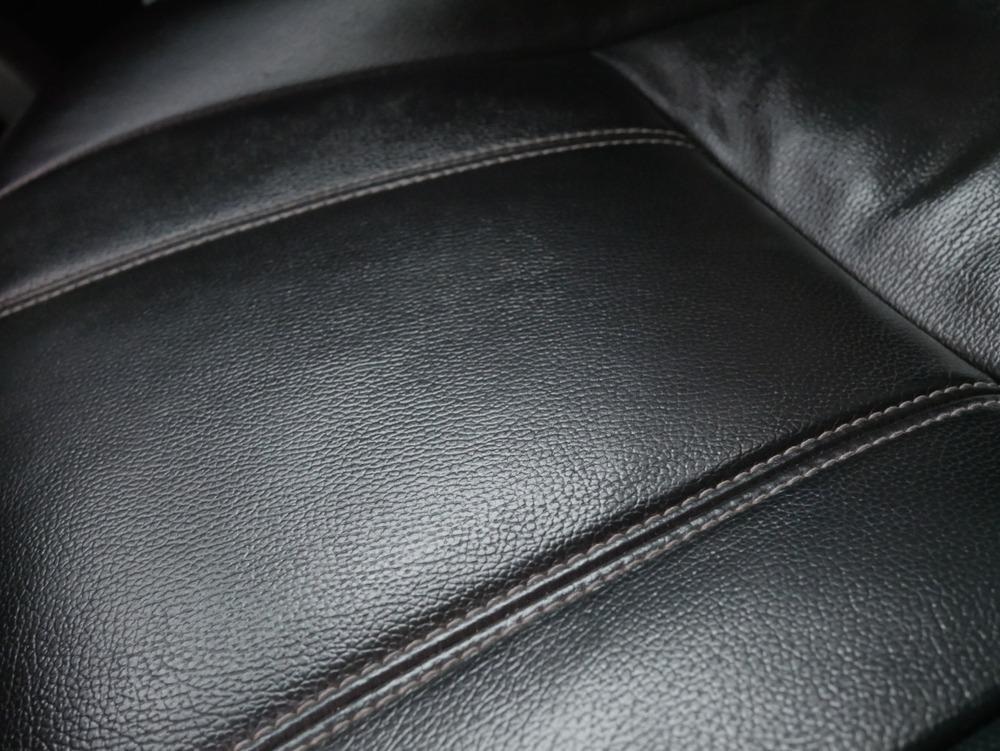Automotive manufacturers have begun to offer sustainable, animal-product-free alternatives in their vehicles in response to consumer demand and increased attention towards climate action.

Image Credit: chanonnat srisura/Shutterstock.com
The automotive industry is among the most environmentally unfriendly and unsustainable there is.
Not only is it still largely fueled by fossil fuels, which has contributed massively to climate change, but many premium brands use leather and animal-based products within their interiors.
While such materials are sumptuous and the hallmark of quality, they are also expensive, damaging to the environment, and unsustainable.
Consequently, there has been a shift in consumer demand; although leather remains a popular choice for car interiors, consumers increasingly desire animal-free or vegan options.
The Problem with Leather
Leather is a sign of quality and durability in premium brand cars; it is expensive, not only in monetary terms, but also in its cost to the planet.
Animal agriculture, which includes leather and wool production, accounts for 14.5% of global greenhouse emissions according to UN estimates.
Firstly, these animals require space to graze, which often means razing large parts of ancient forests to the ground, thus reducing the carbon-capturing ability of the area. Secondly, the animals produce large amounts of methane, a greenhouse gas.
Furthermore, turning animal skins into leather requires toxic and harmful materials. The process, known as tanning, permanently alters the protein structure of the skin to make it more durable and less susceptible to decomposition.
Its arguable whether leather is a byproduct of the meat industry or not; many state the animal skins are a waste product that needs disposing of, while others argue it a standalone multi-billion-dollar industry that rears and slaughters millions of animals each year.

Fire burning in Amazon rainforest to make land for agriculture and cattle pasture in Para, Brazil. Image Credit: PARALAXIS/Shutterstock.com
Recycled Luxury Interiors
Premium car manufacturer such as Mercedes report that luxury materials like leather are still very popular for upholstery and car interiors.
However, many car firms are shifting away from leather interiors, developing vegan leather alternatives, or phasing leather out altogether in response to consumer demand
The idea of non-animal-based leather alternatives is nothing new, but the challenge is to find premium materials that can be produced in large volumes, feel just like leather, and are as durable.
Land Rover are considered leaders in non-leather fabrics and sustainability.
Although their consumers still love luxury, Land Rover state they want to dial back the consumerism and do some good at the same time.
Consequently, they have developed a range of premium materials using recycled materials.
Their Evoque and Velar models feature a wool–polyester blend from Kvadrat. Land Rover say each vehicle that uses the material includes the equivalent of 53 recycled bottles.
Likewise, Mercedes have used Artico—a synthetic vinyl-based leather material—in their cars since 2003.
It sits between cloth and real leather upholstery in its trim ranges, the company says, and the materials has been refined over the years so that owners would struggle to tell the difference between leather and Artico.
Mercedes also use Dinamica, a sustainable and recyclable premium microfiber suede made from old clothes, plastic bottles and flags.
The material, made by Miko, is also used by Audi and Volkswagen, mostly for covering automotive seats and headrests, headliners, door panels or steering wheels.
Volvo are following suit and will only offer leather-free interiors; they will be using Nordico, a non-leather textile made from recycled plastic (PET) bottles, wood fragments from sustainable forests in Sweden and Finland, and corks recycled from the wine industry.
Polestar, their sister brand, will use WeaveTech, a water-based PVC material they have developed in-house.
Other manufacturers are following suit; Toyota use a material called Softex, and Ferrari utilize a vegan leather called Mycro Prestige in a number of models, while Tesla has completely phased out leather in their vehicles.
Natural Luxury Alternatives
Mercedes also offers a fiber textile made from natural materials—eucalyptus. Eucalyptus Melange is a regenerated fiber, which the company says changes the approach to sustainability in driving.
Eucalyptus grows quickly, and requires less water than the plants normally used to make such materials; the result is a lightweight, sumptuous, and durable material that conserves resources.
Volkswagen use AppleSkin leather, a bio-based leather-style fabric derived from waste apple skins from juice production.
The resulting material is approximately 20%–30% apple, versatile and durable, vegan and cruelty free.
Authentic Haptics for Modern Imitation Leather Cover in Cars
Although the production process is a trade secret, the company say the cellulose— which comes from the mushy pulp of apple skins—effectively reduces the amount of virgin materials required to create AppleSkin.
Fewer virgin materials mean fewer natural resources are used, lower emissions, and lower energy consumption across the entire supply chain.
In a similar vein, Bentley utilize a natural-based leather derived from waste grape skins, stalks, and seeds from wine production.
The waste is combined with vegetable oil and a water-based polyurethane to create an eco-composite material which is coated onto organic cotton.
The resulting material is made of more than 70% renewable and recycled raw materials.
The Future
As consumers have become more aware of the consequences of their actions, their expectations have changed.
People are now concerned with the origin of their products and how they are made, including the ethical treatment of animals.
They are also more aware of climate change and the effect it is having on the planet.
Consequently, the vegan leather market is expected to reach $85 billion by 2025.
The move towards such materials will help car manufacturers improve their sustainability and reduce their carbon footprint by making use of recycled and naturally-derived waste.
However, when so many consumers still consider leather to be a premium product, is it enough to simply offer alternatives?
Mercedes offers both leather and leather alternatives, but say the former is still the most popular choice for upholstery and automotive interiors.
The question remains: should leather be phased out completely and replaced with innovative alternatives to protect the future of our planet?
References and Further Reading
Attwood, J. (2021) Analysis: How veganism is changing the car industry, Autocar https://www.autocar.co.uk/car-news/industry/analysis-how-veganism-changing-car-industry.
Elliott, H. (2021) Volvo Reveals New Materials for Its Leather-Free Cars, Bloomberg https://www.bloomberg.com/news/articles/2021-09-23/volvo-reveals-new-materials-for-its-leather-free-electric-cars.
Land Rover. (2021). Land Rover, Feel the Future with Eucalyptus, https://www.landrover.com/liveforthecity/en/feel-future-eucalyptus.
Bremner, R. (2014) Artico - it’s vinyl upholstery by another name, Autocar https://www.autocar.co.uk/opinion/anything-goes/artico-it-s-vinyl-upholstery-another-name.
Goodwin, A. (2020) What is Mercedes Artico leather? Carbuyer https://www.carbuyer.co.uk/tips-and-advice/172913/what-is-mercedes-artico-leather.
Dinamica delivers sustainable luxury for automotive interiors, Innovation in Textiles https://www.innovationintextiles.com/dinamica-delivers-sustainable-luxury-for-automotive-interiors/.
AppleSkin, Luxtra London https://luxtralondon.com/.
Leather Alternatives; Grape Leather, Pangaia https://thepangaia.com/pages/leather-alternatives-grape-leather.
Disclaimer: The views expressed here are those of the author expressed in their private capacity and do not necessarily represent the views of AZoM.com Limited T/A AZoNetwork the owner and operator of this website. This disclaimer forms part of the Terms and conditions of use of this website.